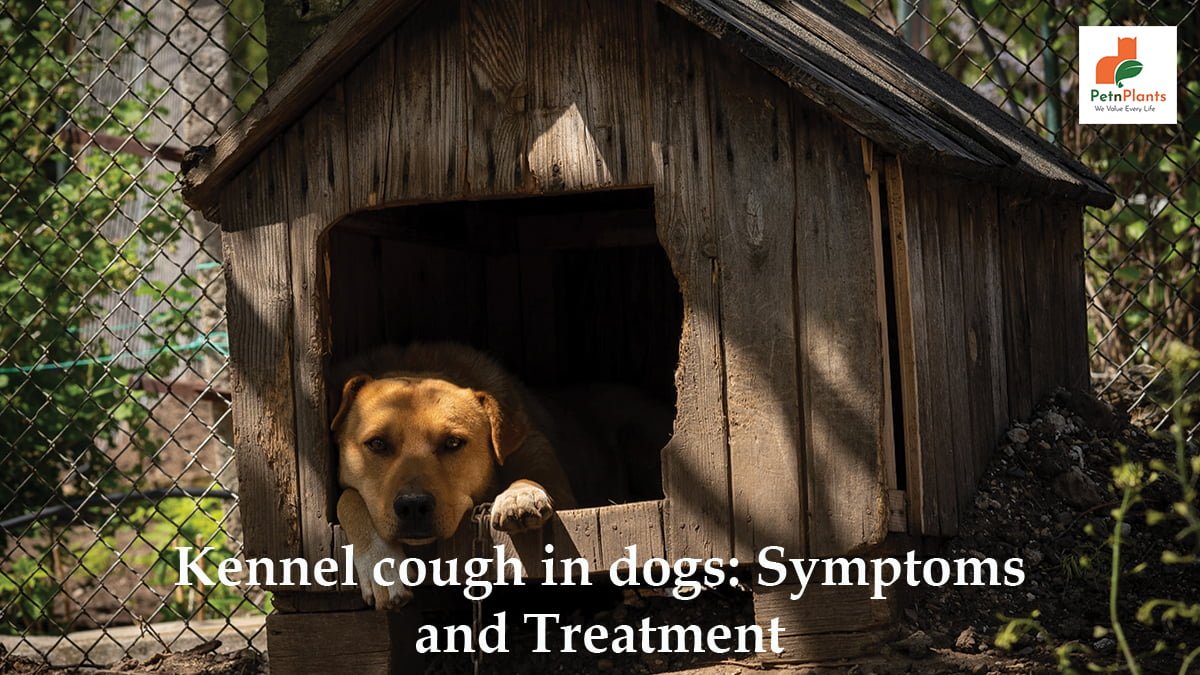Latest
Pets
Plants
How Indoor Plants Can Affect Pet Behavior, Stress & HealthJanuary 12, 2026
We Value Every Life

Kennel cough is a highly contagious dog disease caused by several viruses and bacteria. It is spread easily from dog to dog through coughing and sneezing and can even be passed to humans. Symptoms of kennel cough include a dry, hacking cough, loss of appetite, and fever. Treatment typically includes antibiotics and rest, but hospitalization may be necessary in severe cases. In this blog post, we will explore the symptoms and treatment of kennel cough in dogs in more detail. If your dog displays any of these symptoms, it is important to take them to the vet as soon as possible for diagnosis and treatment.
Kennel cough is a highly contagious respiratory disease in dogs. Several different viruses and bacteria, including Bordetellabronchiseptica, Bordetella pertussis, adenoviruses, parainfluenza viruses, and mycoplasma pneumoniae, cause it. Kennel cough is spread through the air or by direct contact with infected dogs. The disease can cause a severe hacking cough that lasts several weeks. Treatment involves antibiotics and supportive care. Prevention is by vaccinating dogs before entering a kennel or other high-risk environment.
When a dog contracts kennel cough, it will show various symptoms ranging from mild to severe. The most common symptom is a dry, hacking cough that sounds similar to a honking goose. Other symptoms include:
The cough can sometimes be so severe that it causes vomiting or retching. If your dog displays any of these symptoms, it’s important to contact your veterinarian immediately for diagnosis and treatment.
Kennel cough, also called Bordetella or tracheobronchitis, is a highly contagious respiratory infection in dogs. It is caused by Bordetellabronchiseptica, a bacterium that infects the upper respiratory tract. Kennel cough is spread through contact with infected dogs, either through the air or by sharing contaminated food and water bowls. The bacteria can also be spread on clothing and shoes.
Symptoms of kennel cough include a dry, hacking cough, gagging, retching, and sneezing. Some dogs may also have a fever, runny nose and eyes, and reduced appetite. The symptoms usually last 10-14 days, and most dogs recover without treatment. However, some may develop pneumonia or other serious complications.
If your dog has symptoms of kennel cough, it is important to see a veterinarian as soon as possible. Your vet will likely prescribe antibiotics to treat the infection and may recommend cough suppressants or other medications to help relieve your dog’s symptoms. In severe cases, hospitalization may be necessary.
Prevention is the best way to protect your dog from kennel cough. If you are boarding your dog or taking them to daycare or training classes, ensure the facility requires proof of vaccination against Bordetella. You should also vaccinate your dog against Bordetella for at least two weeks before exposure to other dogs (such as at a grooming salon).
As the name suggests, kennel cough is a highly contagious disease that affects dogs confined in close quarters, such as kennels, shelters, or doggy daycares. The good news is that there are several things you can do to help prevent your dog from getting this disease.
First and foremost, make sure your dog is up to date on all of his vaccinations. Kennel cough is most commonly caused by the Bordetellabronchiseptica bacteria, which is included in the standard vaccine for dogs (DHPP). If your dog is spending time in a high-risk environment, such as a boarding facility or doggy daycare, he may also need to be vaccinated for Bordetellaparainfluenza, another virus that can cause kennel cough.
In addition to vaccinating your dog, you should also take steps to reduce his stress while he’s in a high-risk environment. Dogs that are stressed are more likely to get sick, so try to choose a facility that has plenty of space for your dog to roam and socialize with other dogs; if your dog seems anxious or stressed while at the facility, talk to the staff about ways to make his experience more enjoyable.
Finally, watch for signs of kennel cough and take your dog to the vet if you notice any unusual symptoms. The earlier you catch the disease, the easier it will be to treat.
If your dog is coughing, it’s important to figure out whether it’s a serious problem. In most cases, kennel cough is not serious and will go away independently. However, if your dog has trouble breathing, has a fever, or seems very sick, you should take them to the vet immediately.
If your dog has been around other dogs coughing, it’s a good idea to have them checked out by the vet. Kennel cough is highly contagious, so if your dog has been exposed, it may be at risk for developing the illness.
In general, kennel cough is not life-threatening, but it can be very uncomfortable for your dog. If your dog is showing any signs of illness, it’s always best to err on the side of caution and see the vet.
0